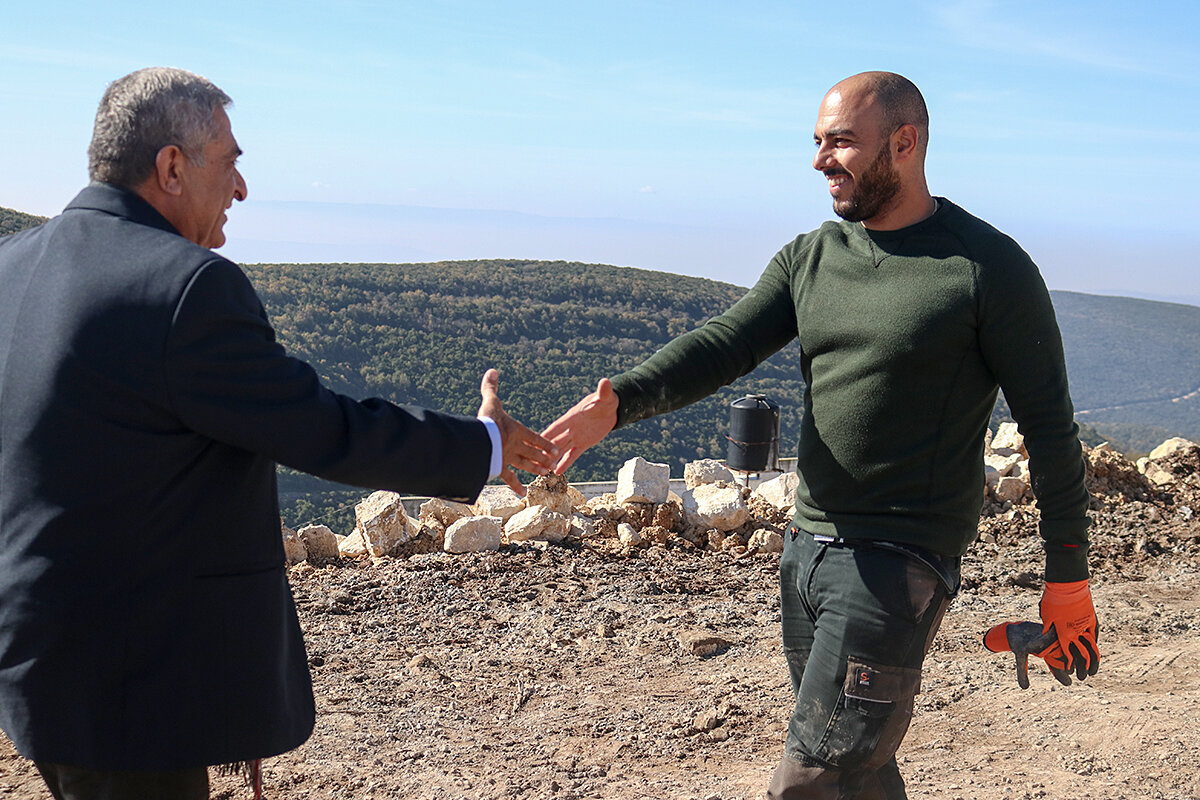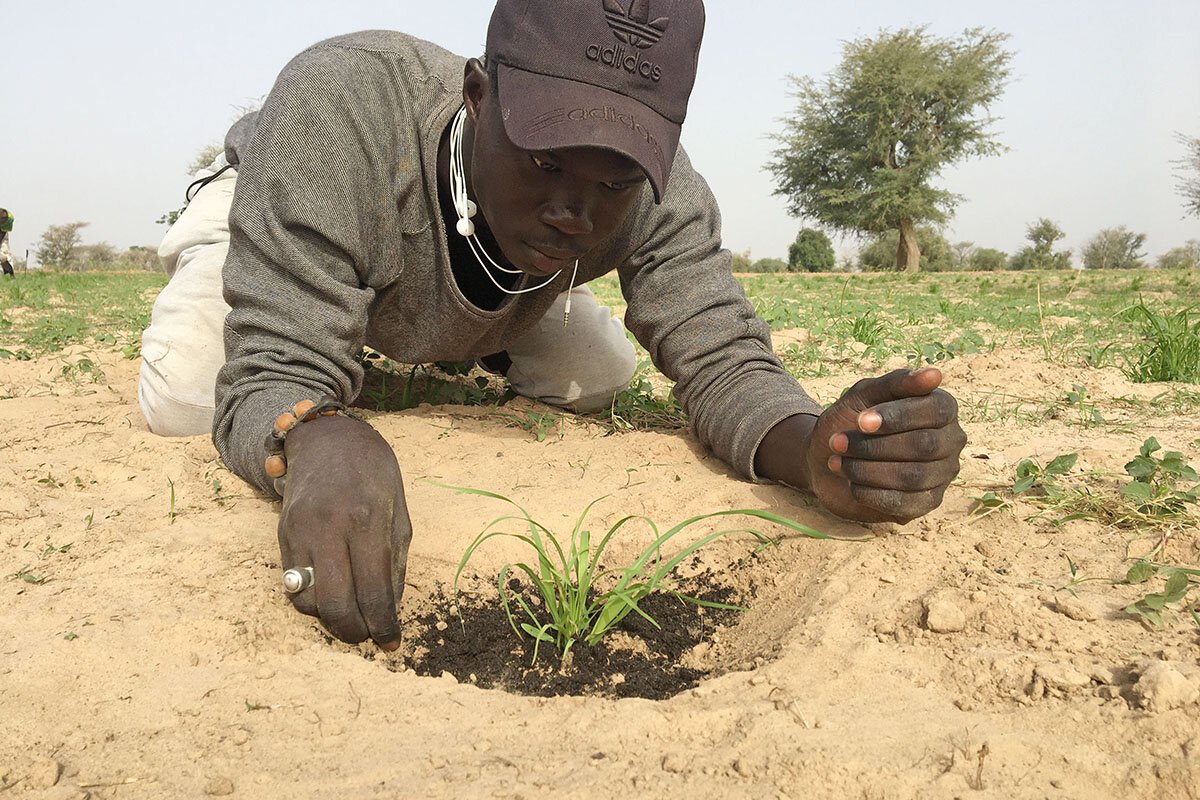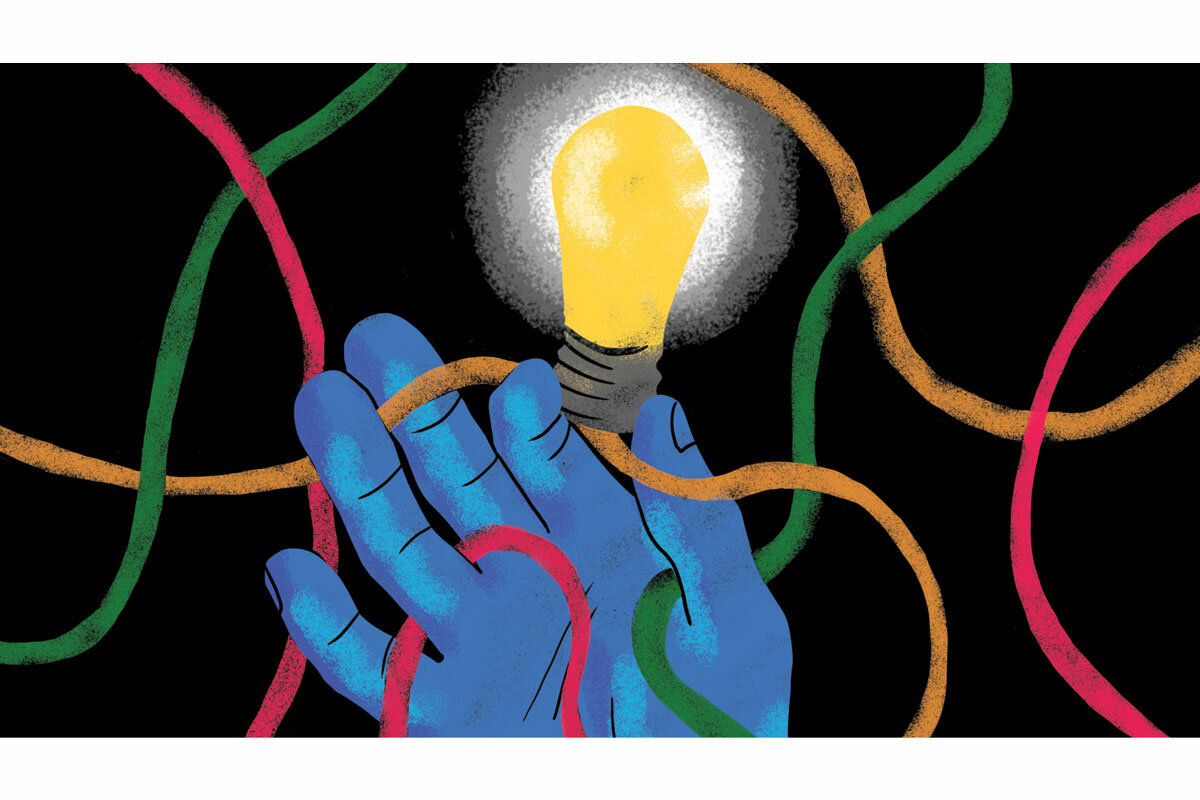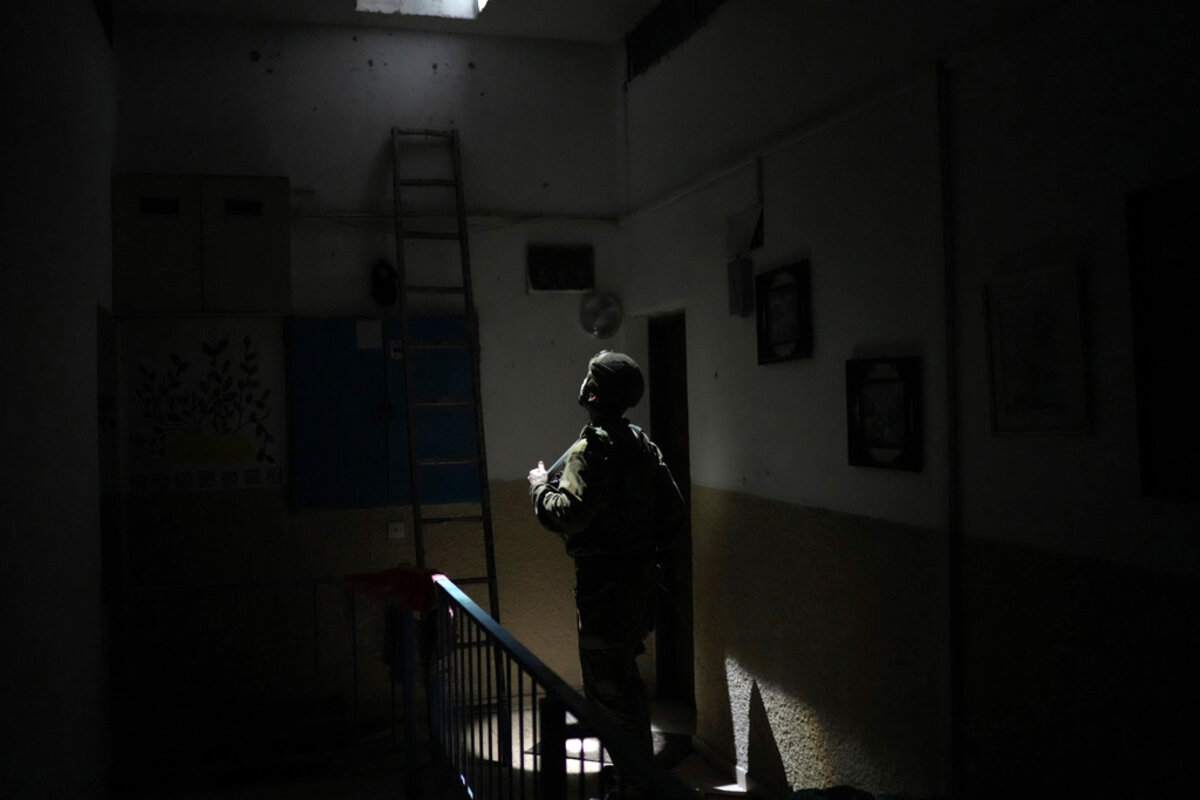Suburban voters often play a pivotal role in U.S. elections. They were key to Joe Biden’s presidential win in 2020. Nikki Haley hopes they’ll propel her to a surprise win in New Hampshire’s Republican primary.

Why is Christian Science in our name?
Our name is about honesty. The Monitor is owned by The Christian Science Church, and we’ve always been transparent about that.
The Church publishes the Monitor because it sees good journalism as vital to progress in the world. Since 1908, we’ve aimed “to injure no man, but to bless all mankind,” as our founder, Mary Baker Eddy, put it.
Here, you’ll find award-winning journalism not driven by commercial influences – a news organization that takes seriously its mission to uplift the world by seeking solutions and finding reasons for credible hope.
Explore values journalism About usMonitor Daily Podcast
- Follow us:
- Apple Podcasts
- Spotify
- RSS Feed
- Download
 Mark Sappenfield
Mark Sappenfield
There is an unspoken truth in journalism: You find what you look for. There is undeniable anguish and inhumanity in Israel and Gaza. We have reported on it extensively. But there is also hope and light in the darkness. Just read Taylor Luck’s story today.
Many organizations don’t look for these things because they think they’re not there or not news – that they’re comparatively unimportant or even naive. We disagree in the most vehement terms. These things are the seeds of any viable future, the substance of any potential progress. That makes them not only news, but also absolutely essential news.
Already a subscriber? Log in
Help fund Monitor journalism for $11/ month
Monitor journalism changes lives because we open that too-small box that most people think they live in. We believe news can and should expand a sense of identity and possibility beyond narrow conventional expectations.
Our work isn't possible without your support.
Today’s stories
And why we wrote them
( 5 min. read )
Today’s news briefs
• Huge NATO war games: The organization will launch its largest military exercises in decades next week, including about 90,000 personnel and aimed at showing Russia that the alliance is determined to defend all of its territory.
• Student debt canceled: The Biden administration approves debt cancellation for 74,000 student loan borrowers. The debt cancellation totals nearly $5 billion, the White House says.
• Northern Ireland strikes: Tens of thousands of public sector workers across the country walk off the job to protest a political deadlock that left them without pay increases, and the region without a functioning government.
• Japan moon landing: The Smart Lander for Investigating Moon (SLIM) lands on the moon, making Japan the fifth country to achieve a moon landing, joining the United States, the Soviet Union, India, and China.
( 4 min. read )
In Beit Jann, an Israeli Druze village with views of Lebanon, Syria, and Jordan, the outlook is one of determined optimism. Even as the entire region is gripped by uncertainty and rising violence, villagers speak of peaceful coexistence.
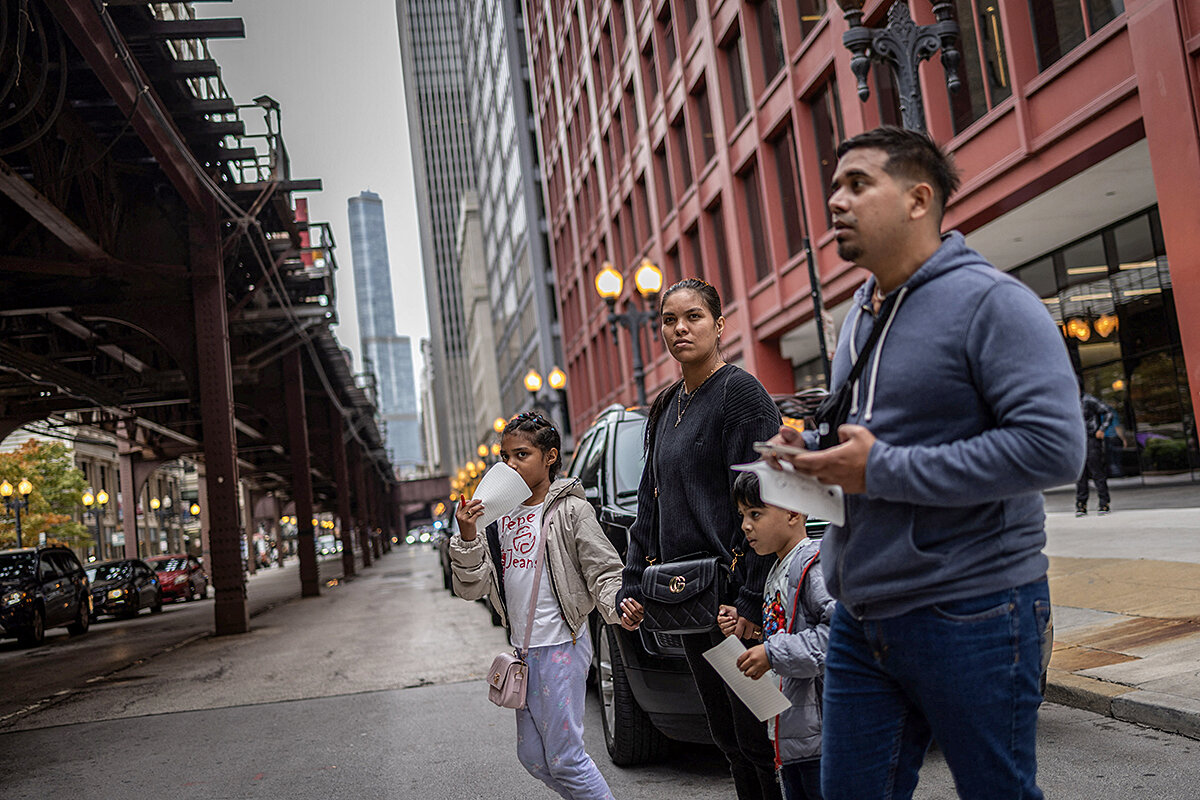
( 4 min. read )
There’s a growing push from mayors and immigration advocates to urge federal action on expanding work permits for migrants. Whether that helps or hurts the U.S. is a matter of dispute.
( 4 min. read )
As policymakers and governments worldwide scour for ways to cope with the climate emergency, a small town in Senegal shows that solutions can come from those closest to the effects.
Essay
( 3 min. read )
Placing oneself in uncomfortable situations runs counter to our wiring. But, as our writer learned, in pushing past our self-made boundaries lies discovery, growth, and new horizons.
The Monitor's View
( 3 min. read )
An intensifying exchange of artillery fire across Israel’s northern border with Lebanon has elevated concerns that the crisis in Gaza is spreading into a regional conflict. Within those two countries, however, two unusually candid volleys in recent days hint at something else. Amid war, Arabs and Israelis may be sowing seeds of stability through new commitments to democracy.
Hassan Nasrallah, the leader of the Iran-backed Hezbollah in southern Lebanon, declared earlier this month that the war in Gaza has opened “a historic opportunity to completely liberate every inch of our Lebanese land.” In a sermon the following day, Bechara Boutros Al-Rahi, patriarch of Lebanon’s Christian Maronite sect, responded that “we must ... spare Lebanon and the Lebanese, through wisdom and self-restraint, from entering [the] war.” He added, “The decision on war and peace rests exclusively with the government ... in line with the Constitution.”
A similar exchange occurred last night in Israel. In a press conference, Prime Minister Benjamin Netanyahu vowed to “continue the fight with full force” in Gaza until Israel had achieved “total victory over Hamas,” the militant Palestinian group that had governed the enclave and attacked Israel last October. That pledge met a rare open rebuke from former military chief Gadi Eisenkot, an observer to the country’s war Cabinet. “It is necessary,” he said in a TV interview, “to return the Israeli voter to the polls and hold elections in order to renew trust because right now there is no trust.”
Such affirmations of democratic principles reflect how, in times of war, negatives can sometimes galvanize positives. As the Global Security and International Affairs program at the American Academy of Arts & Sciences recently noted, a breakdown of civilians’ trust in institutions and politicians during conflict “in certain cases ... may indicate that democracy is functioning.”
Two new polls provide a granular view of the Israel-Hamas war’s impact on Arab public thought. Several metrics show increased solidarity with Palestinians since the start of the war. But two findings, published this week by Arab Barometer, are particularly revealing. One shows that while support for Hamas has tripled in the West Bank since October, it has barely moved in Gaza. Both measure discontent over corruption and governance – with Hamas in Gaza, where it has governed; and with the Palestinian Authority in the West Bank, where it governs.
The survey confirmed that disenchantment in a second way: 51% of Palestinians would refuse to vote in an election contested by the current leadership of either faction.
“What Arab publics want most from democracy is not elections but other integral elements: less corruption, better services, more effective governance, greater individual freedoms, and economic opportunity,” according to the Washington Institute for Near East Policy.
That may be what compelled Abdallah Bou Habib, Lebanon’s caretaker foreign affairs and emigrants minister, to affirm last month that his government remains committed to “diversity, pluralism, and peaceful coexistence.”
It may also be the most important factor motivating Arab leaders to seek a diplomatic formula for ending the conflict in Gaza. Since the start of the war, public opposition to normalizing ties with Israel has risen by as much as 30% in countries that have already taken that step or were moving in that direction, according to a survey published last week by the Arab Center for Research and Policy Studies in Doha, Qatar. Arab citizens are pointing their discontent toward their own governments as much as at Israel.
A Christian Science Perspective
Each weekday, the Monitor includes one clearly labeled religious article offering spiritual insight on contemporary issues, including the news. The publication – in its various forms – is produced for anyone who cares about the progress of the human endeavor around the world and seeks news reported with compassion, intelligence, and an essentially constructive lens. For many, that caring has religious roots. For many, it does not. The Monitor has always embraced both audiences. The Monitor is owned by a church – The First Church of Christ, Scientist, in Boston – whose founder was concerned with both the state of the world and the quality of available news.
( 4 min. read )
When conflicts feel big and far away, putting our prayers into practice in our own lives gives them wings.
Viewfinder
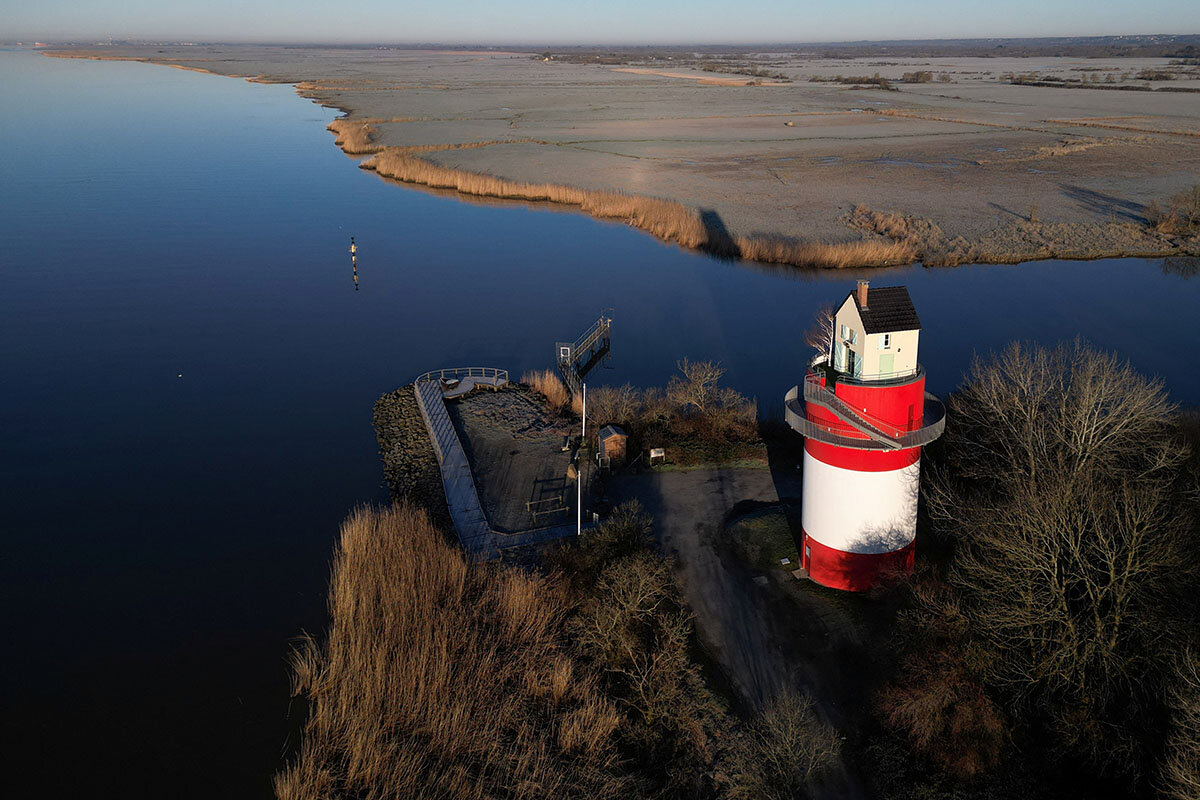
A look ahead
Thank you for joining us this week. We’ll be back Monday with more on preparations for the New Hampshire presidential primary, as well as developments in the Middle East.
For those of you who read our weekly political roundup last Friday and sent in feedback, thank you! We will not have a roundup this week, as we are taking all your comments into consideration. We’ll keep in touch about our next steps.




